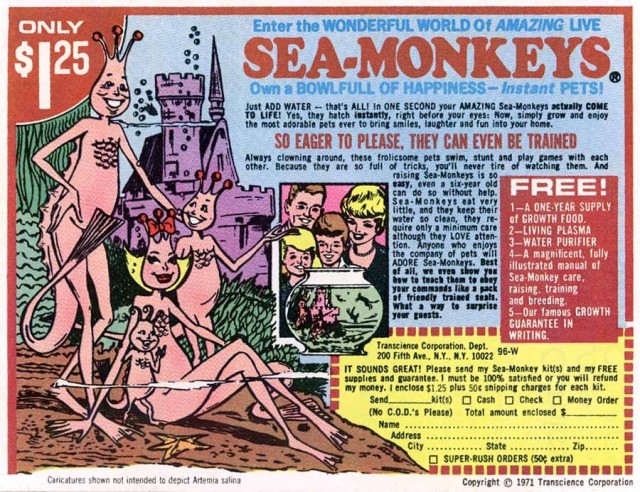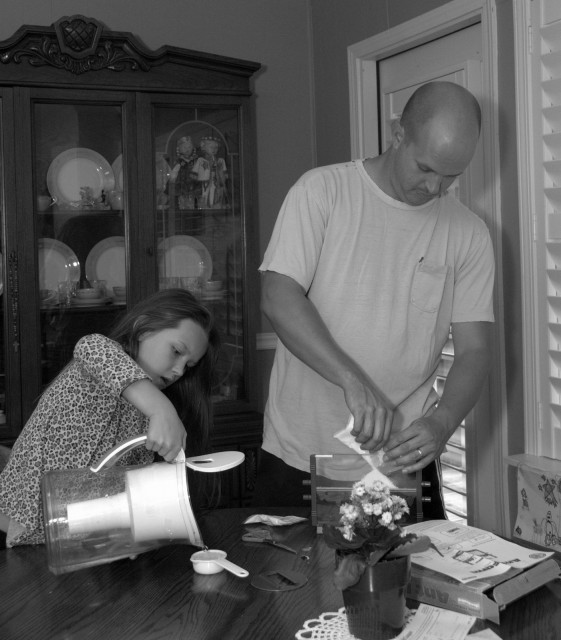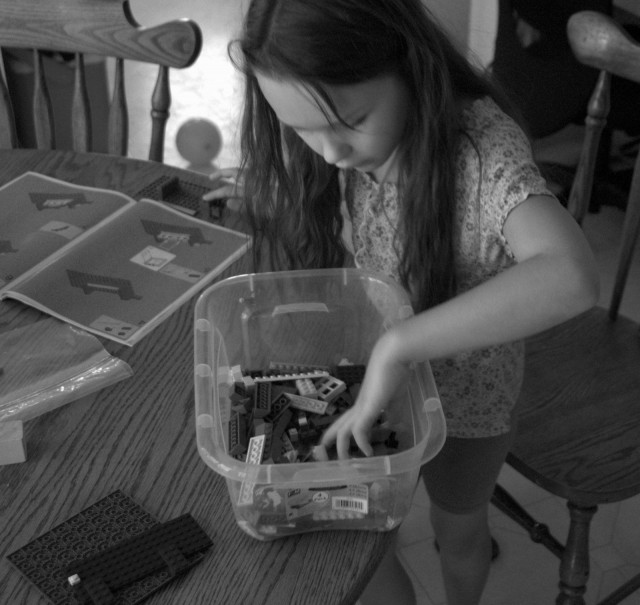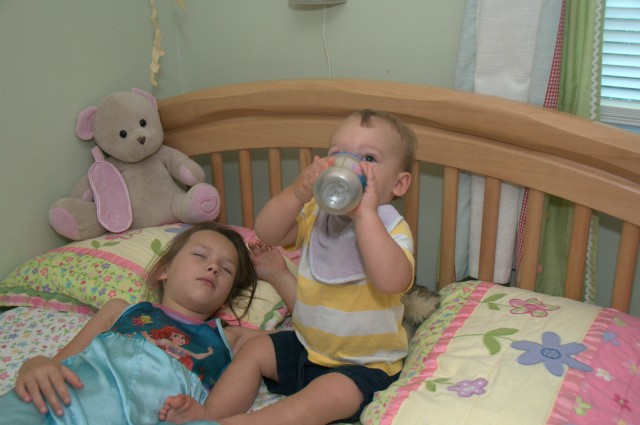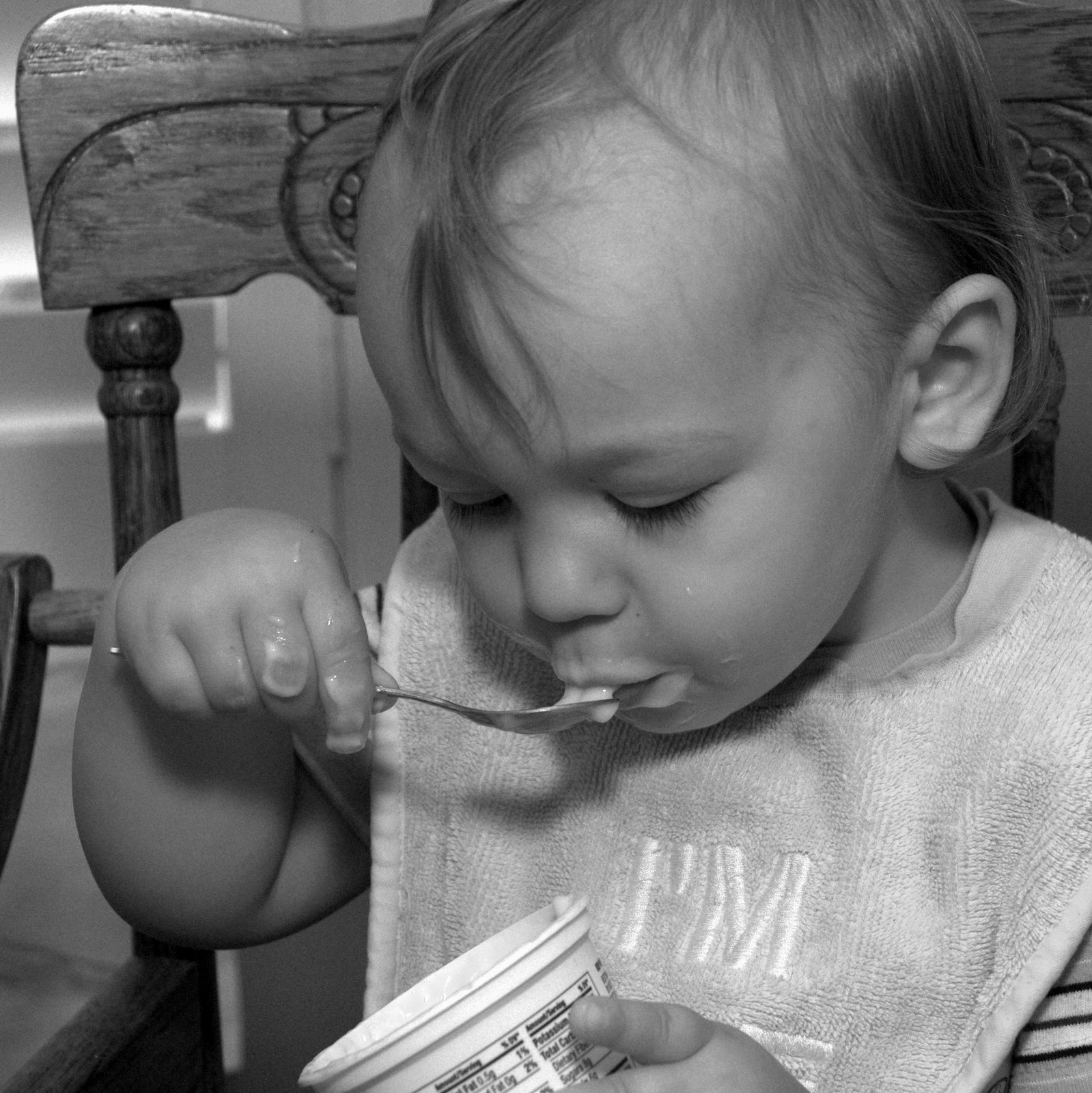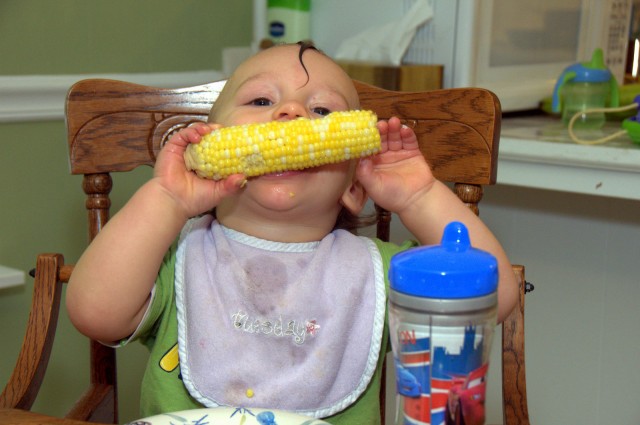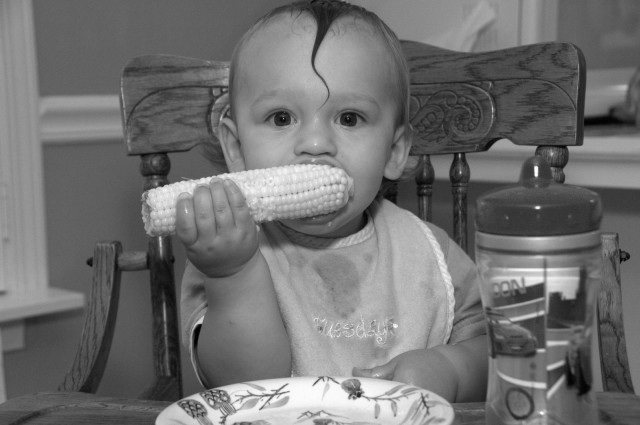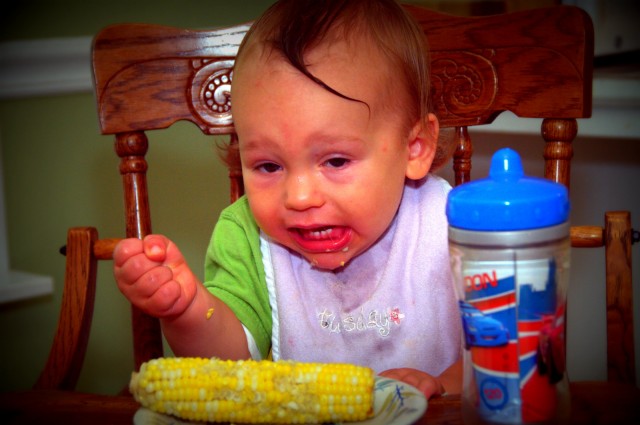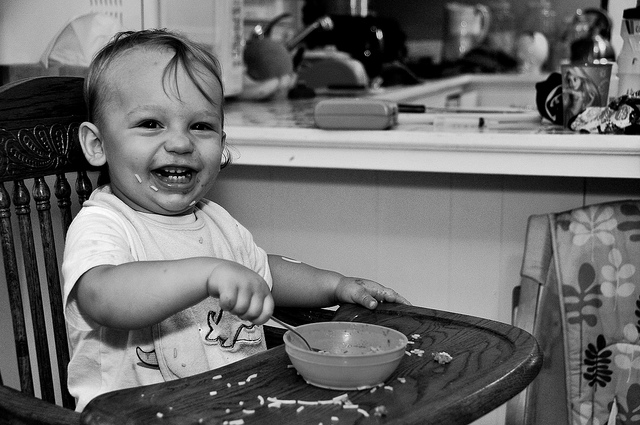The real role of leadership in education … is not and should not be command and control. The real role of leadership is climate control, creating a climate of possibility.
Silver Car, Red Face
It was certainly an expensive car, that silver Corvette we saw coming home from Mass. And it was certainly a powerful car: I’ve never driven one, but a company and culture do not put that much hype into an American-made sports car if it only barely outruns a minivan. I’m certain the driver takes a great deal of pride in being able to own such a car, but owning such a car tempts people.

Having that much power at your disposal makes you want to show it off a little, to put the pedal to the metal, as the saying goes, and perhaps roar out of an intersection and leave behind all us mere mortals driving glorified aluminum cans. But having that much power and controlling that much power are two different things, so I couldn’t help but giggle a bit when the driver of said automobile, in an effort to impress us all, roar out of the intersection, lost control of his car, and took out a line of hedges.
Fortunately nothing hurt but the hedges and a middle-aged man’s toy and ego.
The Smallest Pets
The advertisement was on the back of every single issue of Boy’s Life magazine, the offical publication of the Boy Scouts. I never really knew what they were, but Sea-Monkeys seemed like fascinating creatures. Of course it was obvious even to a ten-year-old that the ad was full of hyperbole. In reality, they’re brine shrimp, incredibly small creatures with a short life span. I was fascinated but never enough even to broach the subject with my parents: I knew from the quality of the ad itself and its exaggerating tone that it had to be a scam. But how cool would it have been if they were only half of what they were advertised?
Had I really thought about it, I would have realized that there is a better alternative for small pets, a much more intelligent and interesting alternative: an ant farm. When K, L, and E returned home this afternoon with an ant farm, I wondered why I’d never thought of it as a kid.
But that’s one of the many advantages of being a parent: one gets to re-live certain childhood by your daughter’s side.
Anonymous
I’m not in teaching for the income but for the outcome.
Every Kid Needs a Champion
9
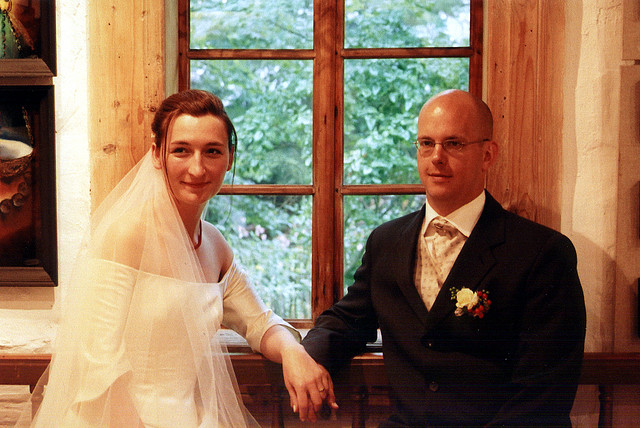
Happy ninth anniversary, my love!
Looking for Parts
Language Confusion and Independence
Like L, E is growing up bilingual. And so when Mama encourages him, “Powiedz ‘no'” (“Say ‘no'”) and he responds “Nie,” it’s difficult to figure out if he’s asserting his newly-emerging independence or simply not differentiating between languages.
A Response to Ferrett Steinmetz
A friend posted a link to an article at The Good Men Project entitled, “Dear Daughter: I Hope You Have Awesome Sex” by Ferrett Steinmetz. With that provocative title, how could I resist reading? Completing the piece, I posted it to my on Facebook account with the comment, “This article has so much wrong with it, I don’t even know where to begin…” To which another friend responded, “?? what exactly is wrong with it?”
At the heart of the problem is the notion grounding the whole perspective: “Look, I love sex. It’s fun.” It’s kind of like going to the movies or listening to your favorite band: it’s fun! And what do we do with fun things? We enjoy them without much thought of the consequences. Indeed, it’s fun–how can there be anything but positive consequences? Sex is little more than fun because sex is pleasure. That is the basic underlying assumption of the whole piece.
I find the article objectionable because I believe sex is more than pleasure. I believe it’s so much more significant than almost anything else we do in our lives that to call it “fun” is to diminish it to its lowest common denominator. Steinmetz, though, feels sex is little different than a sit-com, and he denigrates those of us who feel differently with misrepresentation, false dichotomies, and straw men arguments.
To begin with, he hardly seems to understand (or perhaps he willfully misrepresents) the thinking behind those of us who look at those “10 Rules” memes and chuckle that they’re pretty accurate. (It almost goes without saying to point out that the rules are hyperbolic expressions of some fairly basic, traditional ideas about parenthood and sex, but perhaps some take it a little more literally than others. I cannot say.) He begins by calling them “twaddle” and goes on to misrepresent the motivation behind such tongue-in-cheek thinking.
There’s a piece of twaddle going around the internet called 10 Rules For Dating My Daughter, which […]boil down to the tedious, “Boys are threatening louts, sex is awful when other people do it, and my daughter is a plastic doll whose destiny I control.”
Nowhere in said meme is there the suggestion that “sex is awful” or that “my daughter is a plastic doll whose destiny I control.” I’m not quite even sure where this comes from, for there must be so many progressive interpretative steps between a hyperbolic “rule” like “when it comes to sex, I am the barrier, and I will kill you.” and hating sex and plastic dolls that a simple-minded traditionalist couldn’t possibly grasp it, but I’ll try to reconstruct it.
- When it comes to sex, I am the barrier, and I will kill you.
- This shows that I don’t want you to have sex with my daughter, which
- means that I can’t possibly like sex, and so therefore
- I want to force this view onto my daughter, and by doing so,
- show that I think she’s a plastic doll.
That doesn’t make a lot of sense, I know. It’s not very coherent, logically or otherwise. Perhaps there were other steps I missed. I’m not sure. When making such huge leaps as these between the premise and the conclusion of an argument, it’s difficult for others to reconsctruct the rest of the argument. Still, it’s hardly a surprise: Steinmetz simply passes over these steps and assumes that his audience would fill in for him. He knows his audience: mostly progressive males. And judging by the comments, the seem to have done so willingly.
Of course this is an old theme, this notion that anyone who equates anything moral with sexuality is a repressed prude who has never had satisfying sex and therefore doesn’t like sex and furthermore doesn’t want anyone else to have sex either. It’s nice to see that Steinmetz spells this quaint notion out as well a few sentences later:
It doesn’t lessen you to give someone else pleasure. It doesn’t degrade you to have some of your own. And anyone who implies otherwise is a man who probably thinks very poorly of women underneath the surface.
There it is: the implication that behind all of this is misogyny. There could be no other reason for being concerned about how our daughters view sex than our hatred of women. No, that doesn’t make much sense to me either: the conclusion doesn’t logically follow the premise, but as with the earlier example, Steinmetz is likely making a series of progressive connections that he assumes his readers will make, so he doesn’t bother to explain how these ideas might be connected. They just are, and ever correct-thinking individual knows that.
This is also a complete misrepresentation of the traditionalist worldview. No one is suggesting that giving someone pleasure lessens you; no one is suggesting that receiving pleasure lessens you. What a traditionalist is suggesting is that this pleasure might come at a price, and that that price might not be worth the pleasure in the first place. What might this price be? Disease; unwanted pregnancy; complications later in life with desired pregnancy after these unwanted pregnancies were dealt with through abortion; a lack of self-esteem when one begins wondering whether anyone actually likes you for you, whether anyone can see through your body to your soul. Those are a few that come to mind. Is it possible to live a modern sexual life without these? I would imagine so. The point is, I don’t want my daughter taking that risk.
This last quote also illustrates Steinmetz’s tendency to present the issue as a series of false dichotomies. He continues with this gem:
Do you know what would tear me in two even more [than holding you after you’re heart’s broken]? To see you in a glass cage, experiencing nothing but cold emptiness at your fingers, as Dear Old Dad ensured that you got to experience nothing until he decided what you should like.
There are apparently only two options: let the kid screw around, learn from her mistakes, and be there as a shoulder to cry on, or be a controlling manipulative freak who hates all emotion and wants to create a carbon copy of himself. How about the middle way? That would be a father who teaches his daughter that she is more than what’s between her legs, that her value comes from more than how others view what she does with what’s between her legs, and that happiness and fulfillment in life are never connected solely with what she does with what’s between her legs. It would be a father who realizes the daughter is going to make mistakes but tries to give her the tools to avoid those mistakes–and still accepts her unconditionally if she makes them. It would father who doesn’t want to send his daughter out on the journey of life without a map, without a compass, with only the assurance that he’ll be there for her if she loses her way.
But that is diametrically opposed to what Steinmetz thinks is his role as a father:
And so you need to make your own damn mistakes, to learn how to pick yourself up when you fall, to learn where the bandages are and to bind up your own cuts. I’ll help. I’ll be your consigliere when I can, the advisor, the person you come to when all seems lost. But I think there’s value in getting lost. I think there’s a strength that only comes from fumbling your own way out of the darkness.
Some of us feel it’s our job as parents to be there before their children get lost. Some of us feel that being sexually lost is not quite the same as being lost in all the career options one faces or college options. And that precisely is the problem with this article: it turns sex into a decision along the lines of whether to have a latte or a cappuccino. He essentially admits this when he concludes a paragraph later in the text, “Love the music I hate, watch the movies I loathe, become a strong woman who knows where her bliss is and knows just what to do to get it.” Music, movies, sex–it’s all the same thing, so don’t get hung up on preferences! It’s a reframing of the “whatever makes you happy!” meme, and it orients the notion of what it means to be a strong woman along those lines alone.
The obvious 21st century progressive modern response at this point is, “If it’s consensual, though, what does it matter?” Indeed, how consensual is it when everything in our culture objectifies women and turns every encounter into a potential sexual adventure? How consensual is it when the entertainment and advertising industries (aren’t they really one and the same?) spend billions of dollars teaching girls that good girls are slim with large breasts, that sexiness is the greatest virtue, and one’s sex appeal is a tool to be wielded in pursuit of whatever happiness one seeks? (It also teaches that the ultimate happiness is sexual happiness, so it sort of kills two birds with that last bit.) Our culture pumps into girls from a very early age the notion that their value comes from their genitalia, and if they buy into that, that consent is a false consent.
The article isn’t all bad. There are passable passages. Well, one.
This is how large and wonderful the world is! Imagine if everyone loved the same thing; we’d all be battling for the same ten people. The miracle is how easily someone’s cast-offs become someone else’s beloved treasure.
This is about the only thing I can agree with entirely in the whole article. However, the whole article has been about sex, so I’m inclined to assume that the author also is referring to sex here. Perhaps I’m wrong, but he has set me up to interpret it thus: “Imagine if everyone loved the same thing” means “Imagine if everyone had the same sexual predilections.” Hopefully he meant more than that, but judging from the rest of the article, I doubt it.
There’s another passage that seems sweet but is left bitter by the shallow nature of the rest of the article:
Ideally, I am my daughter’s safe space, a garden to return to when the world has proved a little too cruel, a place where she can recuperate and reflect upon past mistakes and know that here, there is someone who loves her wholeheartedly and will hug her until the tears dry.
That’s what I want for you, sweetie. A bold life filled with big mistakes and bigger triumphs.
Given the guidance this bloke has given his daughter, I’m fairly sure that he’ll be providing that “safe harbor” quite often. However, I prefer to be the safe harbor before and after the tragedy. I prefer to try to equip my children with tools to avoid as many on those mistakes as possible, to teach them to see them as mistakes before committing them and thereby avoid them.
The final line, though, puts it all into proper perspective: “Now get out there and find all the things you f-ing love, and vice versa.” It’s all about “f-ing.” Perhaps Steinmetz could have saved us all the time of reading his article by simply quoting the Bloodhound Gang:
You and me baby ain’t nothin’ but mammals
So let’s do it like they do on the Discovery Channel
Gettin’ horny now
Some of us see a bit more deeply into life, though, and we hope our daughters do, too. What’s more, we make a deliberate effort to that end. It’s not about controlling; it’s about empowering and enabling.
And here’s the real kicker for those arguing that this is a case of misogyny: we do the same for our sons.
Morning Memories
Of our two children, the Boy, perhaps not surprisingly, is always the first to wake. His usual time, left to himself, is around 7:00. If we’re lucky on the weekend, he might sleep until a little closer to eight, but he also likes to get up around five just for a change. Still, no matter what, he wakes earlier than L nine times out of ten. And so we do the logical thing: we change his diaper, dress him, Â and take him into the Girl’s room and ploop him beside her.
His reaction is now always the same: he looks for L’s nighttime sippy cup. He’s begun using a sippy cup — adorned with illustrations from Cars — and he likes to help himself to L’s princess sippy cup.
Eventually the Girl wakes up, usually quite glad to see the Boy. The giggles, tickling, and general silliness begin, and so everyone starts the day with a smile.
A perfect start to the day.
Another Cheat
Illness stinks; prolonged illness even more so.
Leon Chwistek
W całej Warszawie nie ma tylu osób inteligentnych, ile ich przychodzi do jednej krakowskiej kawiarni.
Sittin’ on the Steps
Eating Yogurt
Communism and Food
“Communism did to the national cuisine what it did to so much else and reduced it to the lowest common denominator: uniform and bland stodge characterised by poor ingredients, low standards and low expectations.”
Corn!
L is such a picky eater. She’s a first child: we really didn’t know what we were doing. We followed this book’s advice tempered with that person’s wisdom and those mothers’ experience. We’re doing things a bit differently with E. He eats what we eat, and he has from the moment we could give him solid food. As a result, he’s not a picky eater.
There are a few culinary preferences that the Boy and L have in common, though, and one of them is corn on the cob.
L hummed and purred as she ate, working it back and forth like a typewriter paper carriage. The Boy makes use of a variety of methods: the double-handed high hold, the single-handed nibble-from-the-end, the single-handed reverse grip flute position (the right hand would be gripping a flute from the top, not the bottom), and variants of them all.
Occasionally, something not-quite-right hits him, and he balls up his fist and his face into what looks like a mysterious sourness.
But he gets over it, takes a new grip, and continues.
Spaghetti!
Chainsaw
I hear a chainsaw somewhere in the distance in our neighborhood, and I think, “That’s a sound I usually associate with Babcia’s small village.” Then I realize it’s just the Boy making his car sounds downstairs.
